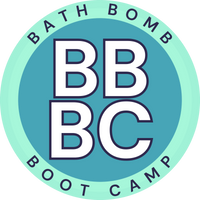Best Soap for Acne
Body acne can be a troublesome, painful and unsightly condition that affects millions. It’s estimated that up to 70% of young, American men and women suffer from acne and that it doesn’t stop with the teenage years.
Many people struggle to find a solution and treatment that cures their acne without ravaging their skin. Ingredients in topical acne products can cause extreme skin dryness that can irritate the skin and even aggravate the existing condition. Because of this, natural remedies are becoming more and more popular as acne sufferers look for more gentle methods to treat themselves.
Handmade soaps infused with essential oils can be incredibly beneficial for acne sufferers, so we’ve put together a quick list of our top four handmade soaps that can help cure acne.
Tea Tree Oil Soap
Tea tree oil has potent anti-microbial and anti-bacterial properties. Evidence is on tea tree oil’s side when it comes to its acne-fighting prowess, but this is powerful stuff! In fact, tea tree oil can actually burn the skin if it’s applied undiluted. Encased within the safety of a gentle handmade soap though, tea tree oil combines with glycerin and gentle ingredients to make an effective acne fighter.
Lavender Oil Soap
Lavender isn’t just a sweet smell and pretty to look at, it’s also a tough little bacteria fighter. Its antimicrobial and antioxidant properties are incredibly beneficial to the skin, but it’s still gentle enough to be used on babies. Soothing and nurturing, lavender oil soap can help reduce the appearance of dark spots caused by acne. Lavender’s wonderful smell is also a well-documented stress reducer.
Clary Sage Soap
Clary sage may not be as common as our first two soaps, but it is a great acne combatant! This earthy and herbaceous scented soap acts as a remedy to skin irritations and has been shown to curb the spread of bacteria. The scent of clary sage can also helped ease stress and anxiety, which is very beneficial to the skin since stress and acne often go hand-in-hand.
Juniper Berry Soap
The subtle herb and woody smell of juniper berry makes it a very popular scent with men, but its benefits for acne sufferers means that it’s popular with a large variety of people. Detoxifying and stress-reducing, juniper berry soap has been shown to have antimicrobial properties that attack the bacteria that causes acne vulgaris.
What Kinds of Soap Making Are There?
There are primarily four ways to hand make soap that you will hear about: cold process, hot process, milling and melt and pour soap. Today we will go over these four common methods so you can decide which one is best for you.
Cold Process
Cold process soap making is the art of making soap completely from scratch. This means that you will use lye, oils and fats to create bars of soap. The benefit of cold process is that once you understand the basic chemistry behind it, the varieties are limitless. Since you control everything from go, you can make your soaps as unique as you. We recommend reading a few books or taking a cold process soap making class before starting since some of the information available online can be a bit dodgy.
Hot Process
This method is very similar to cold process soap making, except that hot process uses a source of heat to accelerate the rate at which the chemical reaction occurs (this is called saponification). This method is great if you want your soaps produced faster or have a scent that doesn’t work well in cold process. Hot process will produce soap faster but it can make it more difficult to achieve complex visual effects, like swirls.
Milled Soap
Milling, or French Milling, is a process whereby soap is grated down and reformed, often with new scents, colors or textures added in. Milling allows you to avoid the caustic lye solutions and even the procedure of making your own soap initially, since you can use already prepared cold or hot processed soap to grate down and reform.
Melt and Pour
This may be easiest way to get started in soap making, since melt and pour soap making is as simple as buying a commercially prepared glycerin block, melting it down, adding whatever scents, colors or botanicals you would like and then pouring it into a mold and allowing it to reform. It also allows people to make translucent soaps easily and to avoid dealing with chemicals, and it can be a nice project to try with kids!
https://t.co/8ypk0WjdNq via @Etsy Pink Grapefruit All Natural Soap | Artisan Soap, Essential Oil Soap, Cold Process Soap Bar, Citrus Scent, Vegan Soap | HAPPY MOTHERS DAY #natural #essential #oil #artisan #soap #integritytt #etsyspecialt @DNRRTz @FameRTR @ShoutGamers @FlyRts pic.twitter.com/xALEccTba4
— Janet Amelia (@AmeliasSoapCo) May 6, 2019

